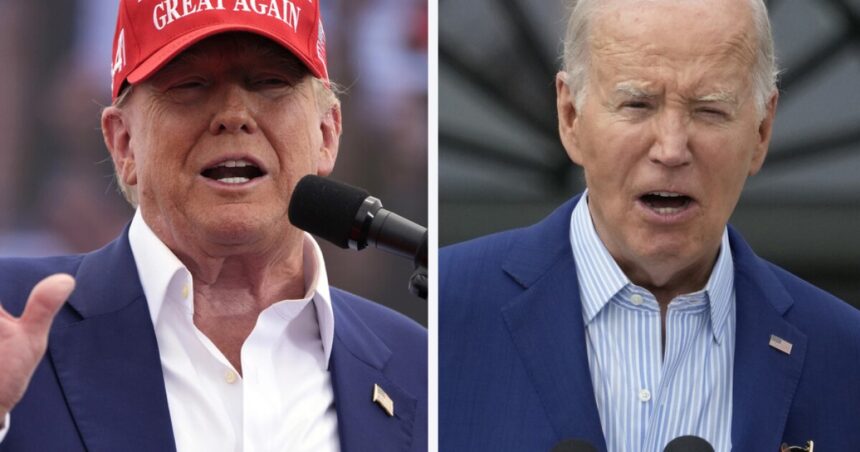When it comes to presidential politics, sometimes age isn’t just a number but, perhaps, a poll number.
An Ipsos poll from earlier this year found that 59% of Americans think both President Joe Biden and former President Donald Trump are too old to serve another term, even if recent research shows cognitive skills, like those needed to run a nation, may actually improve with age.
At 78, if Trump wins come November, he’d officially take the title of oldest person elected president away from Biden, who was elected at age 77. If Biden wins reelection in November, he will be the first person in their 80s to win a presidential election.
It’s an issue that has become front and center this cycle for both younger and older voters.
“I really don’t like Biden. Frankly, I think he needs to retire,” one North Carolina voter told Scripps News. “Frankly, I think Trump, he’s a year older than me. I know I’m past my prime.”
But some experts say the public should be measured in its concerns over the candidates’ ages.
“Cognitive abilities that are important for a leader do not necessarily decline, and some of them improve,” said Michael T. Ullman, a neuroscientist and professor at Georgetown.
While someone younger may have a better memory or an easier time learning a new skill, his research found executive functions, such as the ability to make decisions and focus on what’s important, actually increased with age. And while there are some questions over whether executive function declines once someone reaches their mid-70s, the research isn’t clear.
“The degree of confidence we have that it declines (is) actually very wide. So we don’t actually know that it declines,” he said. “Moreover, even the decline is only back to around mid, late 50s. It’s not further down. So at the higher stage of our sample, which is the high 90s, 98, I think, it’s at the same level as around 58.”
According to a poll by Pew Research, respondents said someone in their 50s is the best age to be president. The median age for U.S. presidents at inauguration is 55 years old.
“Emotional regulation, wisdom, knowledge about the world, and the ability to focus on something and inhibit what’s not important,” Ullman said, “what’s important for a leader, a president, for example, is to make good decisions based on all these factors. It’s not to be, you know, slightly faster.”
These concerns about the ages of the presidential candidates may speak to a larger problem in the country: ageism.
“It seems like we’re doubling down, you know? There’s the use of phrases like a ‘gerontocracy’ to describe who’s leading our country. And it’s pretty rampant throughout this presidential campaign,” said Sue Peschin, CEO of the Alliance for Aging Research. “Not like older adults are separate species.”
The median age for global leaders is 62, according to Pew Research. Just two other nations classified as free have leaders over the age of 80: Ghana and Namibia.
“I think that there’s more to be gained than to be lost,” said Peschin about having older presidential candidates. “I hope that they sort of lean in on these issues, push back hard and just say, ‘Come on. The American people care about how to get their food on the table, how to support their families, what’s going on in their communities.”
Related stories:
Age in America: What concerns are at the top of the list for Gen Zers?
Age in America: Aging doesn’t always equal cognitive decline





